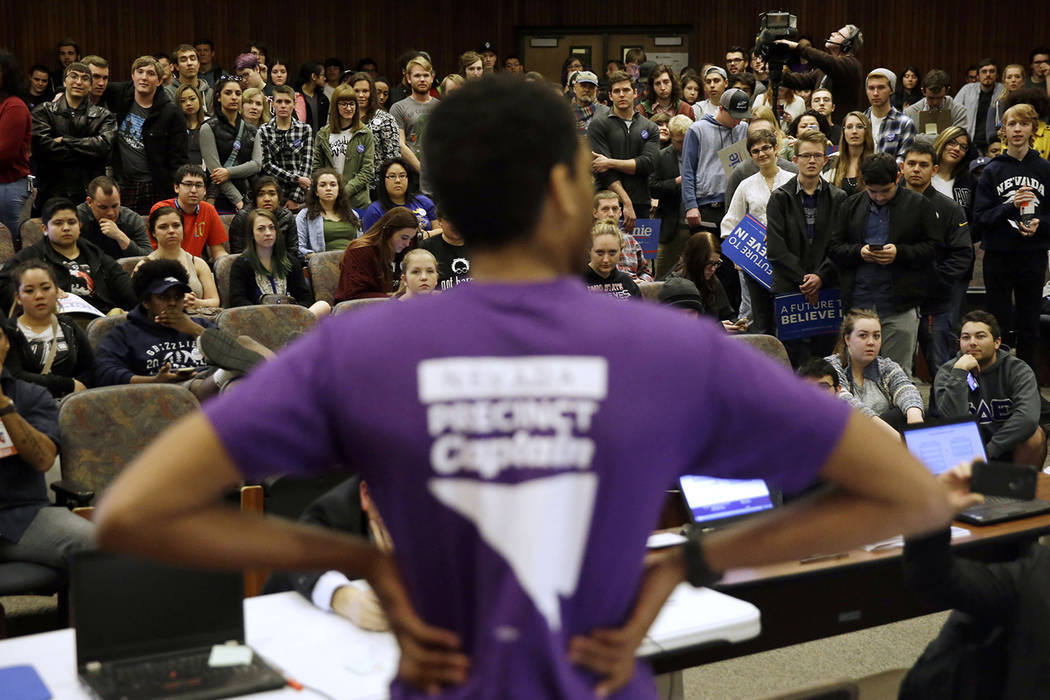EDITORIAL: Democrats scrap tele-caucus over election security concerns

Turns out that restricting voting options isn’t disenfranchisement when Democrats do it.
Nevada Democrats months ago — acting on a directive from the Democratic National Committee to increase participation — proposed allowing party members to vote by phone in next year’s presidential caucus. What could possibly go wrong?
All things being equal, increased participation in the political process is a good thing — but not when it comes at the expense of the integrity of the results. Allowing phone voting is asking for controversy and problems. Last week, this realization finally sunk in.
“We concur with the advice of the DNC’s security experts that there is no tele-caucus system available that meets our standard of security and liability,” DNC Chairman Tom Perez said in a statement. Hilariously, Nevada Democratic Party Chairman William McCurdy II blamed the failure of his party’s tele-caucus effort on “Republican inaction.”
When there are only Democrats on the ballot, the DNC prioritizes election security over higher turnout. When Republicans express similar concerns about general elections, Democrats accuse them of racism and voter suppression.
Republicans have long pushed for voter ID and making voters prove citizenship when they register. Polling shows 80 percent of the public support such policies. The reason is obvious. Especially when the country is sharply divided, it’s important to have accurate election results. Relying on the honor system undermines the election integrity that could be enhanced by ensuring voters provide identification and proof of their eligibility.
At a May campaign stop, Joe Biden decried such ideas as a Republican plot to “curtail the right to vote,” adding, “We’ve got Jim Crow sneaking back in.” Mr. Biden isn’t alone. Sens. Elizabeth Warren, Kamala Harris and Bernie Sanders have all labeled efforts to insure accurate elections as being Republican attempts at voter suppression.
It’s a ridiculous and outrageous accusation. It’s also easy to disprove. Alabama has required voters to show photo identification since 2014. During the high-profile, 2017 special Senate election, Democrats pulled off a major upset, in part because turnout among African-American voters was disproportionally high. Where was all that voter suppression? Other states that require voters to identify themselves also have seen recent surges in minority participation rates.
The subtle bigotry of Democrats notwithstanding, minority voters are more than capable of obtaining and using identification documents.
Increasing ballot access is a worthy goal. But preserving the integrity of the election process must be paramount. It’s telling that Nevada Democrats support the latter concept for their own caucus. They should extend that principle to all elections.